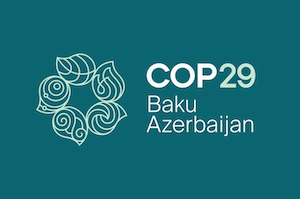The United Nations climate change summit COP29 has “once again ignored” the Pacific Islands, a group of regional climate advocacy organisations say.
The Pacific Islands Climate Action Network (PICAN) said today that “the richest nations turned their backs on their legal and moral obligations” as the UN meeting in Baku, Azerbaijan, fell short of expectations.
“This COP was framed as the ‘finance COP’, a critical moment to address the glaring gaps in climate finance and advance other key agenda items,” the group said.
- READ MORE: COP29: Carbon credit trading scheme criticised as ‘get out of jail free card’
- Fractious COP29 lands $300bn climate finance goal, dashing hopes of the poorest
- Other COP29 climate crisis reports

“However, not only did COP29 fail to deliver adequate finance, but progress also stalled on crucial issues like fossil fuel phase-out, Loss and Damage, and the Just Transition Work Plan.
“The outcomes represent a catastrophic failure to meet the scale of the crisis, leaving vulnerable nations to face escalating risks with little support.”
The UN meeting concluded with a new climate finance goal, with rich nations pledging a US$300 billion annual target by 2035 to the global fight against climate change.
The figure was well short of what developing nations were asking for — more than US$1 trillion in assistance.
‘Failure of leadership’
Campaigners and non-governmental organisations called it a “betrayal” and “a shameful failure of leadership”, forcing climate vulnerable nations, such as the Pacific Islands, “to accept a token financial pledge to prevent the collapse of negotiations”.
PICAN said the pledged finance relied “heavily on loans rather than grants, pushing developing nations further into debt”.
“Worse, this figure represents little more than the long-promised $100 billion target adjusted for inflation. It does not address the growing costs of adaptation, mitigation, and loss and damage faced by vulnerable nations.
“In fact, it explicitly ignores any substantive decision to include loss and damage just acknowledging it.”
Vanuatu Climate Action Network coordinator Trevor Williams said developed nations systematically dismantled the principles of equity enshrined in the Paris Agreement at COP29.
“Their unwillingness to contribute sufficient finance, phase out fossil fuels, or strengthen their NDCs demonstrates a deliberate attempt to evade responsibility. COP29 has taught us that if optionality exists, developed countries will exploit it to stall progress.”
Kiribati Climate Action Network’s Robert Karoro said the Baku COP was a failure on every front.
‘No meaningful phase out of fossil fuels’
“Finance fell far short, Loss and Damage was weakened, and there was no meaningful commitment to phasing out fossil fuels,” he said.
“Our communities cannot wait for empty promises to materialise-we need action that addresses the root causes of the crisis and supports our survival.”
Tuvalu Climate Action Network’s executive director Richard Gokrun said the “outcome is personal”.
“Every fraction of a degree in warming translates into lost lives, cultures and homelands. Yet, the calls of the Pacific and other vulnerable nations were silenced in Baku,” he said.
“From the weakened Loss and Damage fund to the rollback on Just Transition principles, this COP has failed to deliver justice on any front.”
PICAN’s regional director Rufino Varea described the outcome of the meeting as “a death sentence for millions”.
He said the Pacific Islands have been clear that climate finance must be grants-based and responsive to the needs of frontline communities.
“Instead, developed countries are handing us debt while dismantling the principles of equity and justice that the Paris Agreement was built on. This is a betrayal, plain and simple.”
This article is republished under a community partnership agreement with RNZ.
This post was originally published on Asia Pacific Report.